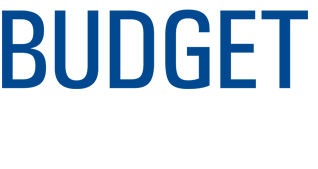THE BC government’s plan to keep investing record amounts in K–12 capital projects like new schools and seismic upgrades is strong, but the budget for operational funding is likely to fall short, said Clint Johnston, Second Vice-President of the BC Teachers’ Federation.
“New schools and seismic upgrades are critical to proper learning environments and the safety of students and teachers,” said Johnston. “It’s good to see this government pushing ahead with record capital investments after years of school closures and stagnant funding by the previous government.”
Johnston welcomed the announcement of $550 million of new funding over three years but cautioned the year-over-year increases will fall short of what’s needed to meet immediate needs like addressing the ongoing teacher shortage. In 2019–20, the government projects a year-over-year increase of $182 million and a commitment to maintain that amount without any future significant increases.
“As enrolment continues to grow and new funds are required to make improvements to class-size, class-composition, and specialist teacher staffing ratios, BC will need to build on the funding increases announced in Budget 2019.
“The 3,700 new teaching positions funded by this government to date are a result of the BCTF’s Supreme Court win. The restoration of our collective agreement language is what’s driving the reduction of class sizes and the increase in supports for children with special needs. After 16 years of cuts under the previous government, those caps and ratios now need to be improved.”
On the government’s ongoing efforts to address BC’s affordability crisis, Johnston said many teachers in BC will benefit from initiatives like accessible childcare, the elimination of interest on student loans, and the new BC Child Opportunity Benefit.
“BC teachers are some of the lowest paid in all of Canada and live in some of the most expensive communities. It’s one of the reasons why teacher recruitment and retention is such a challenge. The effort to reduce costs and make life affordable for individuals and families will help many of our members. While BC needs to see more specific action to address the teacher shortage, I applaud this government for their commitment to tackle the province’s affordability crisis.”
BC NURSES’ UNION
THE BC Nurses’ Union welcomes the health-care system investments contained in Budget 2019, but remains concerned that there won’t be enough nurses to staff the facilities and programs British Columbians rely on.
“The health minister has made a number of high-profile announcements signaling the government’s commitment to public health care,” says BCNU treasurer Sharon Sponton. “So we are looking closely at this year’s budget to see what kinds of health human resource investments are being made to address the province’s nurse shortage, and it does not look promising.”
Last year the provincial government made several investments in the health-care system, including infrastructure improvements, the opening of urgent care primary care centres and the launching of a new surgical strategy aimed at reducing wait times for hip and knee operations.
But Sponton worries about the effect this expansion will have on nurses’ working conditions and notes that even though BC leads the country in economic growth, the province has the lowest number of registered and licensed practical nurses working in direct care, with 889 RNs and LPNs per 100,000 people.
She says health employers are running the system using overtime in order to keep hospitals staffed, a costly approach to management that is driven by an acute shortage of specialty-educated nurse positions, such as emergency and operating room nurses.
“For nurses, long shifts and extended workweeks have become an almost permanent part of what it means to work within BC’s health-care system,” says Sponton. “There simply aren’t enough of us to go around, and the resulting workloads are bad for patient care and harmful to caregivers.”
Sponton argues that urgent education investments are needed, and points to the government’s 2018 Labour Market Outlook that lists nursing as a high-demand profession, with upwards of 25,000 nurses required to staff BC’s health care system over the next 10 years. This includes new nurse positions and the replacement of retiring nurses.
“We believe these are conservative estimates, and it’s reasonable to ask if they take into account increased demand on the heath-care system due to shifting demographics such as the aging population.”
Sponton says the nurse staffing crisis is the worst in the north, with some areas short more than 20 percent of their RN workforce. “Nurses are the backbone of our health-care system, and we need to make sure that public investments come with the education funding needed to ensure nurses are available to provide the safe patient care British Columbians deserve.”
BC CARE PROVIDERS ASSOCIATION
BC Care Providers Association (BCCPA) says it is pleased that BC Budget 2019 provides a new $5 million investment to train more of tomorrow’s health care workers. The funding announced today targets training in several job categories that include health care assistants and specialty nurses.
“By making this investment in training, care providers can better address severe staffing shortages in our province,” says BCCPA CEO Daniel Fontaine. “Seniors care providers are feeling the impact of staff shortages particularly in the north, the Interior and on Vancouver Island.
“When there are staff shortages, seniors that receive care at home or in a long-term care home or assisted living setting will not receive the services they need.”
Due to an aging population, B.C.’s Labour Market Outlook forecasts significant demand for workers in seniors care over the coming decade. Current staff shortages and higher acuity levels are having wide-ranging consequences, leading to worker burnout and increasingly complex care needs both at home and in care homes across the province.
In a 2018 survey by SafeCare BC, 95% of workers indicated that their organization was experiencing staffing shortages.
“The $550 million investment announced a year ago by the B.C. government targets a per health authority average of 3.36 hours per resident day for clients in long-term care,” adds Fontaine. “Fulfilling this goal will require a comprehensive health human resources strategy, which also includes opening up additional training spaces.”
Since 2017, BCCPA has held ongoing dialogues involving government, health sector unions, public and private college representatives, as well as care providers in the development of a worker recruitment and retention strategy for the continuing care sector.
“We have more work to do in partnership with government and our key stakeholders to promote seniors care as a career choice,” says Fontaine. “B.C.’s elderly citizens and their family members are depending upon us to make this happen.”
BC CHAMBER OF COMMERCE
TUESDAY’S balanced provincial budget tackles affordability head on, with continued investments in housing and the Enhanced Child Opportunity Benefit—but small and medium enterprises (SMEs) are still left wondering how they will overcome $5 billion in cumulative cost increases over the next three years, says the BCCC.
“A new Employers’ Health Tax, an increasing carbon tax, a rising minimum wage, climbing corporate tax rates – these costs are weighing down the backbone of BC’s economy,” says Val Litwin, President and CEO of the BC Chamber of Commerce. “Beyond a number of limited tax enhancements, we didn’t see anything today that will materially help BC’s SMEs compete in the years ahead—and our data shows there are storm clouds looming”.
The BC Chamber’s recent 2018-19 Collective Perspective Report revealed 80% of BC businesses feel the cost of doing business in BC has worsened in the last year, and one in two owner-operators report their confidence in BC’s economy has declined in the last 12 months.
“The Provincial Government is keying in on many of the right issues regarding housing and childcare—but we need to remember it’s a thriving business community that funds these investments— and domestically, our businesses are facing increasing cost pressures. We need to ask ourselves, are these investments sustainable in an increasingly uncertain global economy?” Litwin says.
Helpful investments clustered around BC’s new Clean BC Plan include: $10M in incentives for medium-and heavy-duty vehicle conversion, $6M for light-duty fleets to adopt zero-emission vehicles, and $168M over three years for industrial operations to reduce GHG emissions, which will help make BC’s liquefied natural gas industry the cleanest in the world. Additionally, a number of enhancements to the Small Business Venture Capital Tax Credit Program will help new start ups get funding and achieve commercialization faster.
“One policy win for our members today was the ‘Mining Flow-Through Share Tax Credit’ becoming permanent,” says Litwin. “Our members in Northwest and North central BC will also be encouraged to see $100M earmarked for the 26 local governments along the LNG corridor to help address infrastructure needs.”
Overall, the budget could have said more on how BC’s business community—especially SMEs—will compete in the years to come. Though welcome, even the $800 million in today’s budget for ‘business-capital cost allowances on capital investments’, is a result of federal tax changes, not any new program being rolled out provincially.
BCSTA
TUESDAY’S provincial budget has once again delivered a stable year ahead for British Columbia’s 60 public school districts by funding growing student enrollment as well as the school buildings needed to house them, said the British Columbia School Trustees Association. BCSTA said it supports this significantly increased spending on K-12 public education as a wise investment on behalf of both families and taxpayers within the important context of a balanced provincial budget.
“Stable, predictable budgets, which allow boards of education to maintain current educational programs and services for students, are critically important to the K-12 education system,” said BCSTA President Gordon Swan. “This budget should provide the additional funding necessary for school districts to maintain current educational programing during a time of increasing student enrollment.”
At present, 45 of B.C.’s public school districts are seeing year over year growth in student numbers; a trend which is expected to continue over the decade ahead. If we are to maintain B.C.’s goal of being one of the best public education systems in the world, we must continue to invest in school infrastructure, support programs and staffing to accommodate student enrollment growth.
Swan added, “With a stable provincial education budget in place, trustees will now be looking for two key items: 1) the flexibility to direct more of those funds to local educational priorities, and 2) a long-range plan to connect new provincial initiatives around childcare, mental health, and poverty reduction directly with children and youth in local schools. We look forward to working with government as soon as possible to ensure the required policy changes are implemented to ensure our growing education budget can be fully spent in the best interest of the students it is intended to serve.”
Although B.C.’s school districts have seen budgets and staffing levels rise significantly over the last three years, there has been very little opportunity for school boards to direct any of this additional money to meet the local needs of students or to implement new initiatives. Policies, collective agreements, and directed spending requirements have tied the hands of school trustees in terms of providing the fullest range of new opportunities for their students and communities. Increased flexibility on how education budgets may be spent is key to the future success of B.C.’s 558,000 K-12 students.
“BCSTA looks forward to working with government and our public education partners to implement this budget along with the policy changes needed to ensure every education dollar provided is directed to the most effective uses possible. We cannot afford to see money diverted toward imposed requirements that do not put students first,” said Swan.
Additional dollars provided in this budget for school capital construction is also appreciated. A large number of school additions and upgrades, as well as new buildings, are needed in all regions of our province. Constructing school and community infrastructure is a sound economic investment for our province. School districts, along with the provincial government and local municipalities, will all need to do their part to ensure needed school projects can be completed in a timely manner.
Provincial initiatives in such areas as quality child care, early learning, youth mental health services, poverty reduction and integrated health services will provide opportunities for shared initiatives and new embedded programs in our schools. Supporting children and youth ultimately serves our schools and communities well. BCSTA said it looks forward to exploring options to bring these initiatives into our schools.
SBOT
THE Surrey Board of Trade:
What we wanted to hear for Surrey:
- Transportation investments in Surrey and South of the Fraser
- Education investments specifically for K-12 and for SFU/KPU
- Taxes: 2019 is the year of the double dip with MSP and the Employer’s Health Tax. Going forward the EHT Tax Rate of 1.95% is similar to Manitoba and Ontario which are at 2.15% and 1.95%, respectively.
- Revenue streams: There are budgetary contingency plans but in the face of ICBC/BC Hydro/global circumstances, new innovations for provincial revenue in addition to LNG require focus
- Housing: Yes, the market has cooled; however, the province must look at ways to work with local governments to increase supply of market rental housing.
What we like for Surrey:
- Clean BC Investments
- Child Care Investments
- Poverty Reduction Strategy Implementation
- Investment in Arts
- BC to match the accelerated capital cost allowance claims announced by the federal government on November 21, 2018 – Positive to put BC in similar tax depreciation as the United States
- Small Business Venture Capital Tax Credit Program Enhanced – This is good but only applies to very specific circumstances. Not sure how many business owners or investors understand the benefits here
- General corporate tax rate remains competitive at 12% which is the same as Alberta, Saskatchewan and Manitoba but slightly more than Ontario and Quebec (11.5 and 11.6 respectively)
- Small business corporate tax rate is competitive at 2% which matches Alberta and Saskatchewan but is more than Manitoba (0%)
- Taxation
a) Goal of remaining within the lowest two personal income tax bracket for the bottom bracket;
b) Goal of remaining within the lowest two personal income tax bracket for the second lowest bracket; and c) For 2019 being in bottom 3 of top marginal income tax bracket
The combination of the above makes BC very competitive within Canada. The issue is the low dollar thresholds and high personal income tax rates in relation to the United States. Also, if the tax on split income applies then the specific tax payer would lose access to marginal rates for their split income (BC could choose not to apply the new tax on split income rules).
“The Surrey Board of Trade realizes that detailed strategies for the BC budget are to come; however, Surrey will be the largest city in BC very soon and needs strategic attention to implement infrastructure investments,” said Anita Huberman, CEO, Surrey Board of Trade.
Highlights:
- $20 billion in capital investments primarily in the health, transportation and education sectors.
- $902 million for CleanBC, putting BC on the path to a cleaner, brighter, low-carbon future.
- Diversifying forest tenures and manufacturing, increasing timber processing in BC and supporting collaboration with stakeholders, including Indigenous governments with a $10-million investment.
- $18 million to continue making Adult Basic Education and English Language Learning free and accessible for people looking to upgrade their skills and get ahead.
- $21 million to expand BC Transit and handyDART services to help people safely commute in over 30 urban and rural communities in the province.
- $39 million in new funds over three years to ensure BC’s bridges and roads keep people and goods moving, and an additional $4 million to improve commercial-vehicle safety by increasing inspection station hours and targeted enforcement.
- $9 million over three years to implement government’s commitment to modernize the taxi industry and enable ride-hailing in BC
- $15 million for the BC Arts Council to open doors for BC artists, writers and creators.
- $20-million investment to fund a fair, independent oversight body in the mining sector.
- $14 million over three years to transform BC’s employment standards for protections and enforcement, keeping people safe at work.
- $50 million to expand high-speed internet in rural and remote communities throughout BC
- $15 million in making BC a leader in the arts so we can open doors for our artists, writers and creators.
- As of April 1st this year, eliminating the PST on non-residential electricity.
- Tax reductions for businesses investing in machinery and equipment in British Columbia. In total, B.C.’s contribution means $800 million in tax reductions for businesses over four years.
- $76 million to buy land for modular housing












